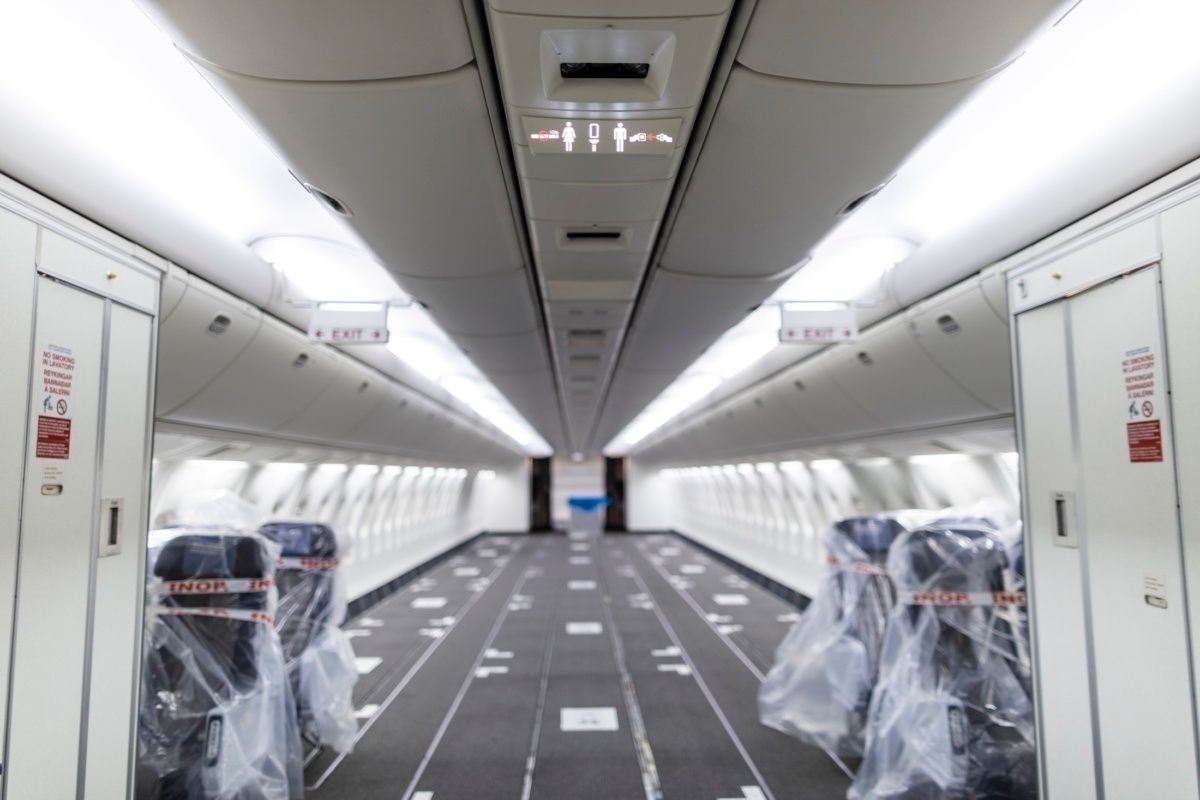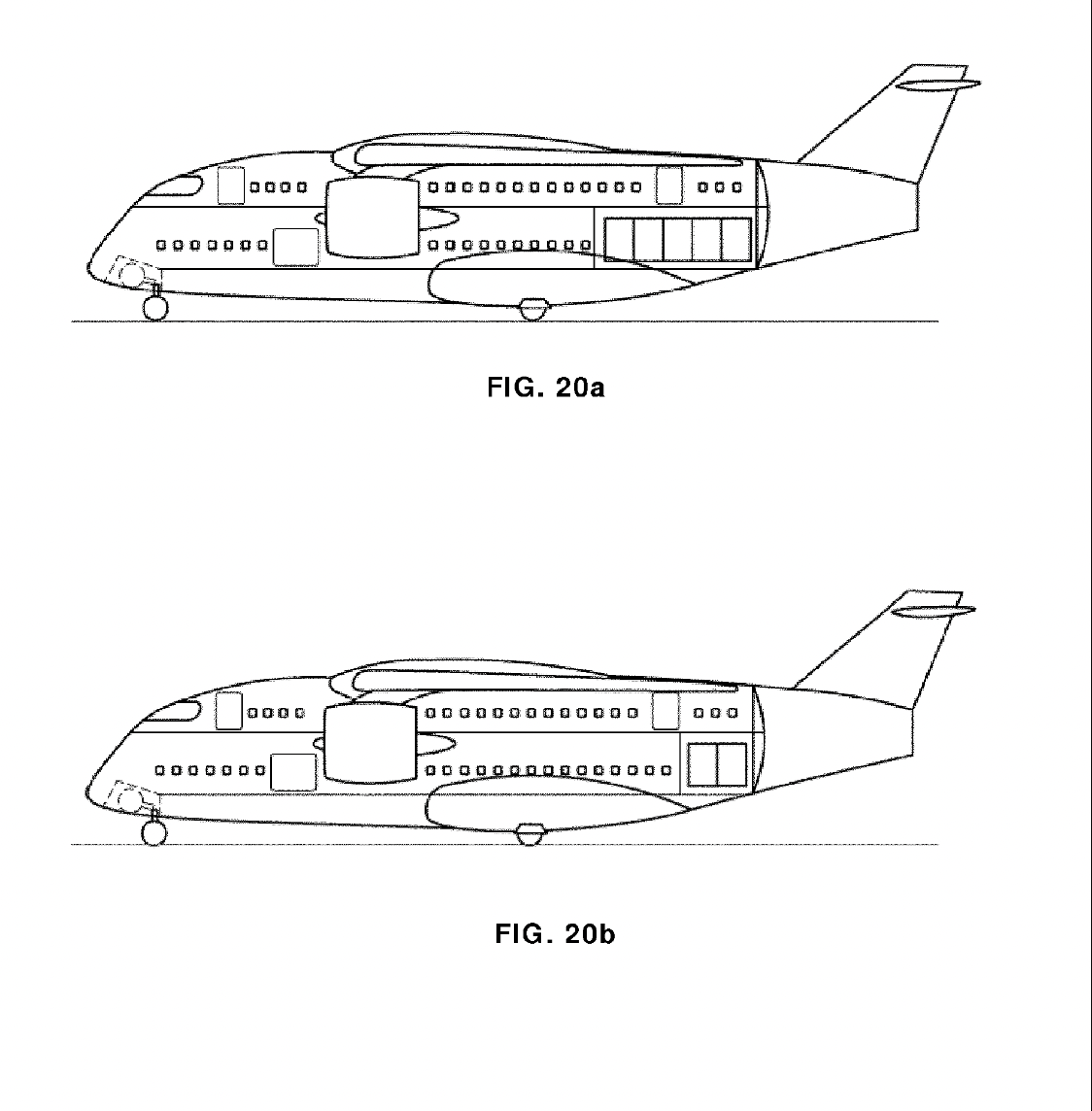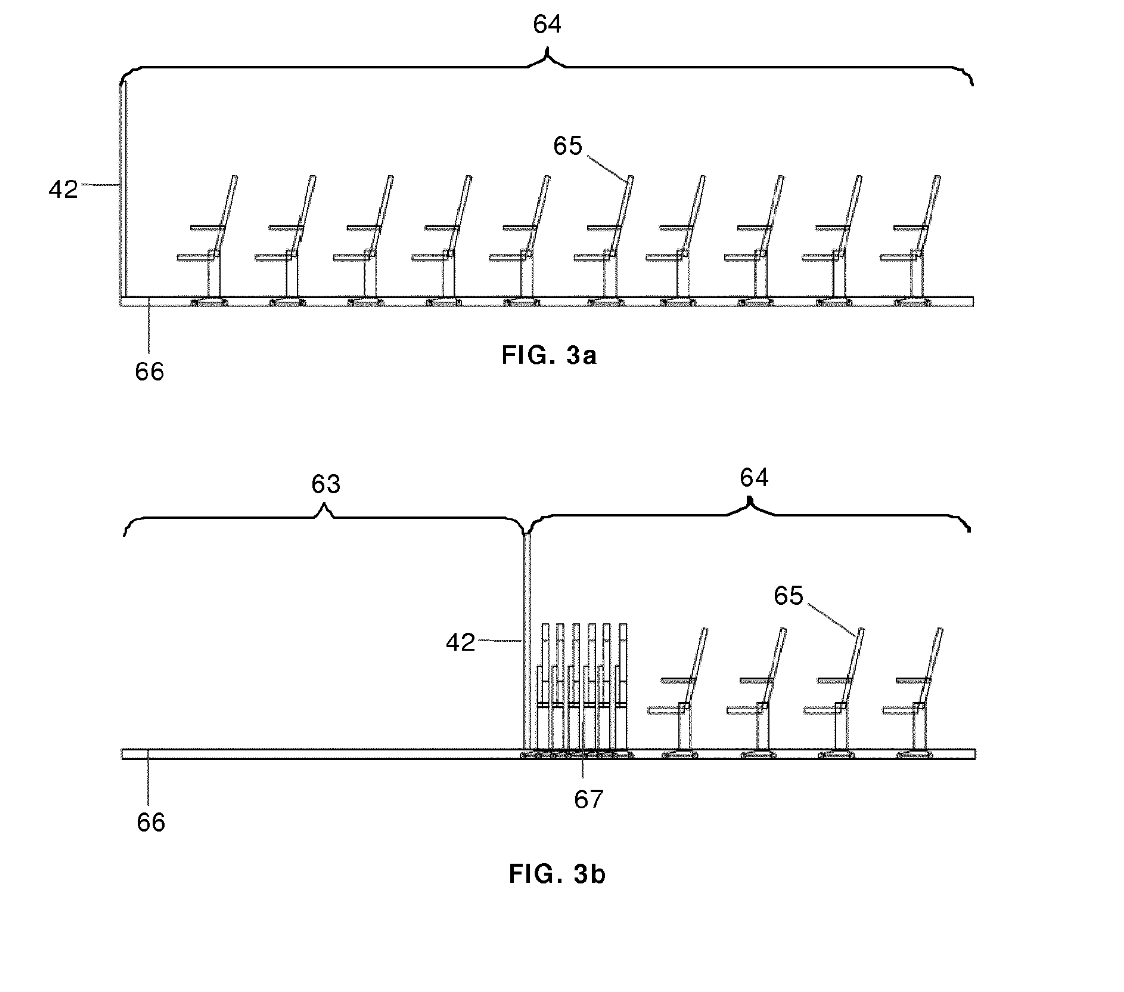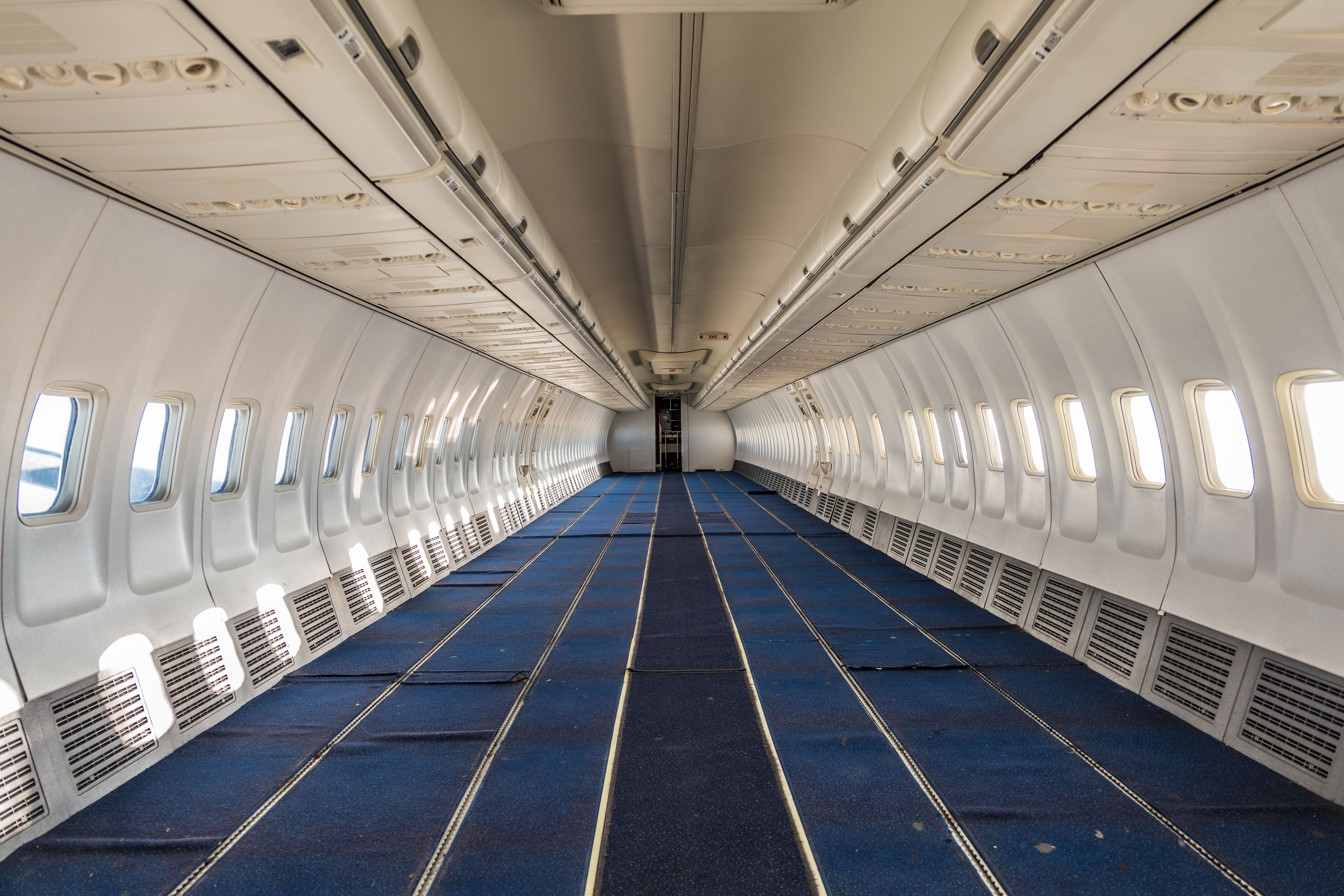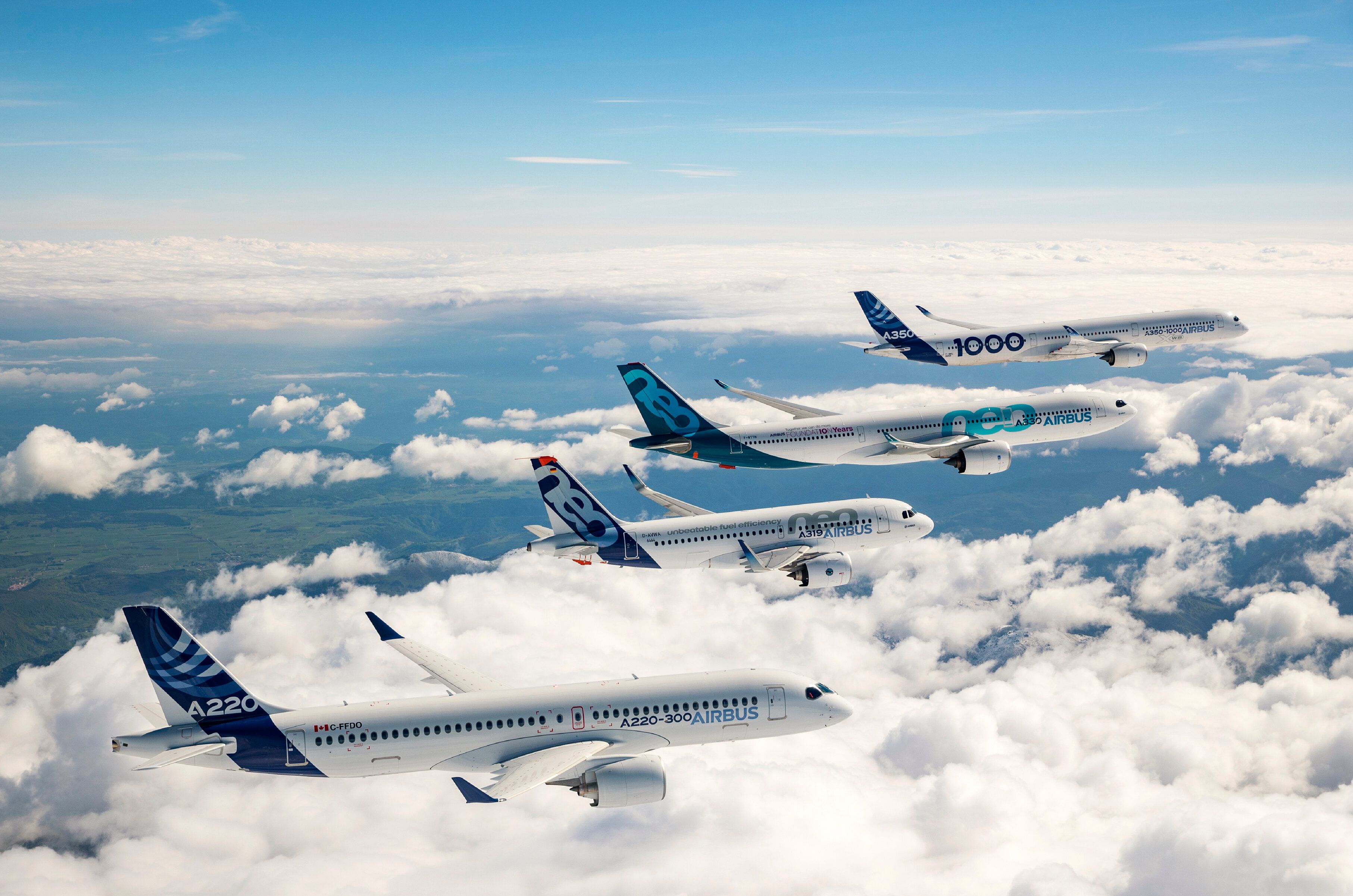Airbus is one of the biggest registrants of patents for inventions in the world. Of the hundreds issued to the European planemaker every year, one, in particular, caught our eye. It is related to folding airline seats, capable of sliding back along the cabin floor to create more space for cargo.
The many patents from Airbus
Airbus has a long and colorful history of filing patents for all kinds of weird and wonderful inventions. Over the last decade, hundreds of patents a year have been filed by the European planemaker, including 622 last year in the US alone. While most of these concepts will never see the light of day, some eventually filter through to the mainstream industry.
One concept which was patented five long years ago actually makes more sense today than it likely did back then. When Airbus filed a patent for its bizarre double-deck plane concept, it included a design feature that we could actually see working rather well in the current aviation environment.
This concept was to have folding seats, which can then slide back on guide tracks to allow for more flexible interior space. By giving airlines this flexibility, Airbus believed the double-deck aircraft could be more user-friendly, allowing for easy switches between cargo and passengers as demand required.
Get the latest aviation news straight to your inbox: Sign up for our newsletters today.
How would it work?
Within the document, Airbus describes the design in some detail. It says that the deck of the aircraft would be built as a continuous surface, extending the entire length of the payload area. The passenger and cargo compartments would be separated by a movable partition wall, allowing the airline to alter the capacity for people or pallets as the need arose.
While this isn’t a million miles away from the ‘combi’ aircraft that have been in widespread use over the years, the Airbus concept has one important feature. The seats themselves would fold up, like those in traditional cinemas or lecture halls, and then could be slid back into themselves using guides on the floor of the aircraft.
The combi aircraft that have been around in the past always required a fair bit of engineering to change their configuration. They were designed to be amazingly easy to convert, with just a few bolts to undo in order to remove the seats. However, that means you need somewhere to store the seats, and it’s still not something you could do at very short notice.
Looking at the concept from Airbus, this process would be made a whole lot simpler. If they did indeed fold up and slide easily, then the conversion could almost be done on the fly, allowing airlines to fly outbound with one configuration, and return with another.
Why would this make sense now?
This concept caught the eye of many in the early months of the pandemic, when preighters, or passenger-freighters, rose to popularity. Created by removing economy seats from the cabin and placing cargo instead, airlines globally adopted this trend. Having Airbus' folding design would have allowed far more aircraft to offer this and reduced costs since the plane wouldn't have to leave active passenger service.
While in theory, this would've been a great idea, certification from regulators would take months or years, defeating its purpose. Not to mention, reconfiguring the entire cabin and adding a cargo door are expensive tasks that would see airlines invest millions of dollars at a time when bankruptcy was on the cards. Looking at the industry in 2023, there is no shortage of passengers, with planes flying at a high utilization rate.
Still, it’s an interesting concept, perhaps one they should have pursued in 2015!

